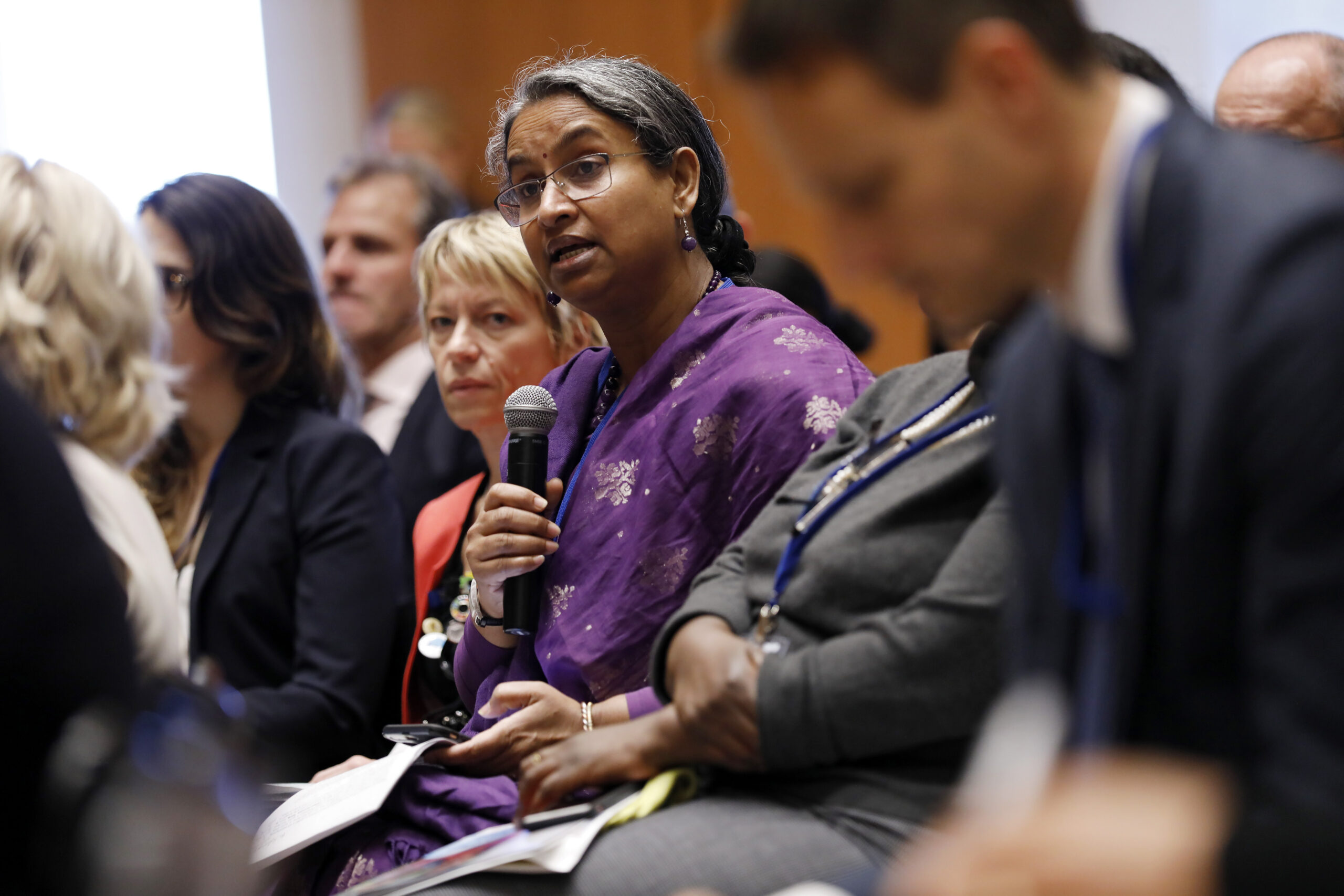Photo credit: U.N Women
Context:
Women continue to be underrepresented in peacebuilding processes and negotiations. Peace Science shows how women’s inclusion in peacebuilding is crucial to the success and longevity of peace agreements.
In the News:
“Syrian women continue to be underrepresented in negotiations to resolve the conflict, which could undermine prospects for success and weaken the foundation for lasting peace in the country, writes gender and foreign policy researcher Renee Coulouris…”Women are disproportionately impacted by armed conflict, and thus are typically viewed as victims rather than actors with agency in peace processes and negotiations.”
“Evidence shows that the inclusion of women in peace processes is essential to establishing lasting peace. A study from the Council on Foreign Relations found that including women in negotiations makes the agreement 64 percent less likely to fail. The same report showed that women’s participation in peace processes makes long-term agreements 35 percent more likely to last for at least 15 years.”
“Colombia provides an illustrative example. Women comprised one-third of the total number of negotiators and played an essential role in talks that led to a peace agreement between the Colombian government and the Revolutionary Armed Forces of Colombia (FARC) after more than 50 years of conflict. Women have also been proven to be significantly capable at bridging divides within highly polarized conflicts similar to Syria. In Liberia, for instance, Christian and Muslim women worked together to push differing parties to negotiate the end to the bloody civil war.”
Insight from Peace Science:
“While the international community stresses the importance of including women at the peace table so peace processes will better represent their needs and interests, it is unclear what specifically this inclusion entails. Do women need to be negotiators, mediators? Do peace agreements adequately represent women’s interests when women are included?.”
“A woman-focused examination of all civil war peace processes reveals that less than 10% meet women’s inclusion as envisioned in UNSCR 1325…What emerges are three joint necessities: an explicit women’s agenda; access to the peace process; and advocacy within the process. The final sections problematize how even in all of these positive cases women had to fight to participate.”
References:
- “Why Syrian Women Could Be the Key to Successful Peace Talks“. By Renee Coulouris for Peacebuilding Deeply. June 19, 2018.
- Peace Science Digest (forthcoming). Ellerby, K. (2016). “A seat at the table is not enough: understanding women’s substantive representation in peace processes”. Peacebuilding, 4(2), 136-150.

